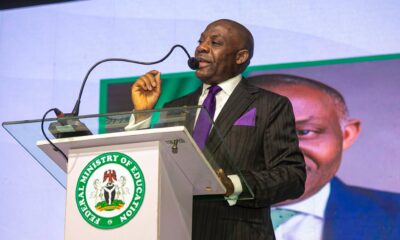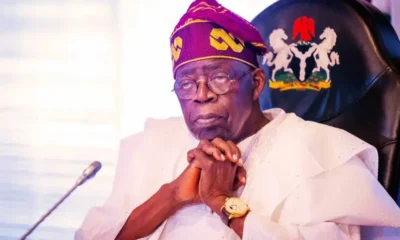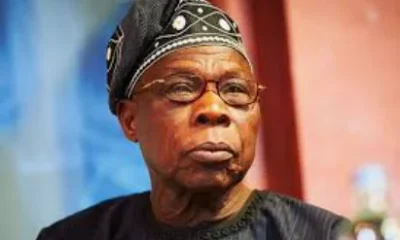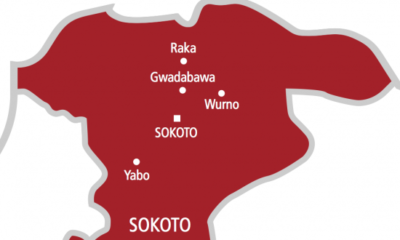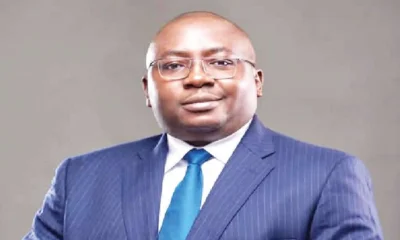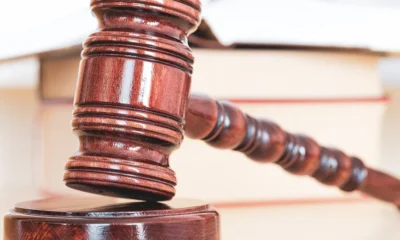News
League of Chief Imams cautions Nigerians against meddling in Middle East crisis

Nigerians, especially Lagos residents, have been cautioned against any kind of protest, disaffection or act that can jeopardise peaceful coexistence in the country due to the ongoing crisis in the Middle East.
They were also warned against meddling in the ongoing war between Iran, Israel and the United States.
The League of Chief Imams made the appeal while speaking at the 2026 Ramadan Tafsir/Iftar programme, held at the Lagos House, Ikeja, on Tuesday night.
The position of the Chief Imams was a reaction to the protest staged in some parts of the country, particularly by members of the South-West chapter of the Islamic Movement of Nigeria on Monday in Lagos over the killing of Iran’s Supreme Leader, Ali Khamenei, during recent United States-Israeli strikes on Iran.
Reacting to the development, the League of Chief Imams who spoke through the National Missioner and Chief Imam of the Ansar-Ud-Deen Society of Nigeria, Sheikh Abdulrahman Ahmad, called for calm and restraint, warning that Nigeria must not allow global events to trigger local unrest.
He said that Ramadan and Lent periods should be used to pray for the continuous peace of Lagos and Nigeria rather than embarking on protests or any form of disaffection over the Middle East crisis, noting that any form of demonstration or protest should be disallowed.
The Islamic cleric noted that Nigeria is also affected by current global happenings; hence, the need for reflection, solution-solving and constant prayers for the government to succeed at both the state and federal levels.
He said: “Beware of fitnah; when it happens, it will not only affect those who are responsible for it, but it will also affect all of us. The crisis in the Middle East is fitnah. This is a time for prayer, a time to be part of peace; this is not a time for protest and demonstration. This is not a time for insults. This is not a time for upheavals. It is a time of sober reflection.
“Allah has warned us to beware of a calamity that, when it happens, will not just affect those who are responsible for it. And at the moment, it is affecting all of us. How may it go? I told the congregation they should prepare for an increase in fuel prices. And today, if you have refilled your vehicle’s tank, you will know how much petrol is being sold per litre. Chances are that it could even go further. It could even hit N2,000 per litre. It may even be worse than that, except we face it with prayer.”
While expressing sadness over the loss of lives and destruction of property in the ongoing Middle East crisis, Sheikh Ahmad said that if citizens cannot be part of the solution, they should not become part of the problem. He also warned against propaganda and being drawn into conflicts that do not directly concern the nation, urging Nigerians to pray for those affected in the Middle East as well as for peace and stability at home.
Referencing the aftermath of the 2020 EndSARS protests, which caused a lot of destruction in Lagos State and other parts of the country, the National Missioner and Chief Imam of the Ansar-Ud-Deen Society of Nigeria noted that Lagos State and Nigeria are still dealing with the consequences and cannot afford further disruption.
“We are not happy that our brothers and fellow human beings have been attacked on a daily basis, but then, if we cannot be part of the solution, we should not be part of the problem. Don’t join a protest that you don’t know anything about. Remember that the country is still dealing with the effect of EndSARS protests. Don’t cause disruption. Your intention may be pure, may be good, but do you know about the next person who will hide under that and cause mayhem and cause destruction? That is why we have come to appeal to all of us that we should be part of the solution, not a part of the problem,” he said.


The League of Chief Imams also implored Nigerians to embrace unity, responsibility and spiritual reflection, praying that the sanctity of the month of Ramadan would bring relief and peace to the world. They also urged clerics to use their respective altars to preach against disaffection, confusion and any form of protest and allow peace to thrive across the land.
The 2026 Ramadan Tafsir/Iftar programme was attended by Islamic clerics, Muslim faithful, top government officials, civil servants and journalists.
-

 Politics7 hours ago
Politics7 hours ago‘Don’t believe it’ – Tunji Alausa denies planning to resign, vie for Lagos guber
-

 News7 hours ago
News7 hours agoTinubu proposes Grid Asset Management Company to fix power sector
-

 Business7 hours ago
Business7 hours agoUS-Iran War: ‘Thank God for Dangote Refinery,’ netizens react as global oil market enters panic mood
-

 News5 hours ago
News5 hours agoTinubu celebrates Obasanjo at 89
-

 Metro7 hours ago
Metro7 hours agoI won’t die anytime soon – Obasanjo declares at 89
-

 Metro7 hours ago
Metro7 hours ago2 Sokoto Kidnap Victims Deliver Babies In Bandits’ Den
-

 Politics7 hours ago
Politics7 hours agoOyo 2027: Jostle for Adelabu’s ministerial seat heats up
-

 Metro7 hours ago
Metro7 hours agoKwara gov’s ex-aide jailed for obstructing police officer



